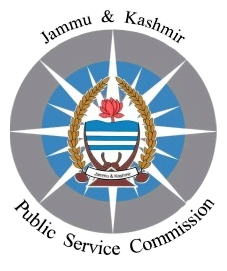DAILY CURRENT AFFAIRS
Dated : 13 May 2020
Topic Covered :
1. Mystery virus attacks tomato crop in Maharashtra
2. IIT-Kanpur in the race to develop two Covid-19 vaccines
3. PM Modi calls for self-reliant India, lays down 5 pillars
4. Champions Portal
5. Eco-Tourism Model to explore the wilderness of TN’s Pachaimalai hills
6. GI Tag for Sohrai Khovar painting, Telia Rumal
MYSTERY VIRUS ATTACKS TOMATO CROP IN MAHARASHTRA
Why in news?
An unidentified virus is attacking tomato crops in large parts of Maharashtra. In the districts
of Ahmednagar, Pune and Nashik, about 60 per cent of the crop has been decimated in the last 10 days.
Highlights:
1. The despondent farmers are pointing fingers at seed companies — including an MNC
— for allegedly selling diseased seeds.
2. The plant leaves are drying up and the ripened tomatoes are developing irregular
shapes and losing their sap.
3. The crop ready for harvesting has been lost to the viral outbreak.
4. This destructive wave is similar in its intensity to the 2017 pink bollworm attack on
cotton.
5. Plant experts have expressed multiple opinions about the outbreak but they have
not been able to identify the type of virus affecting the crop.
6. Due to the lockdown, the samples of the diseased tomatoes have not reached
national laboratories for further analysis.
7. Seed companies have also analysed the samples but they are claiming that the viral
attack is not very significant.
8. Seed companies officials have said unofficially that the crop might be suffering from
cucumber mosaic virus.
Source : Business Line
IIT-KANPUR IN THE RACE TO DEVELOP TWO COVID-19 VACCINES
Why in news?
A team of researchers at the Indian Institute of Technology--Kanpur (IITK), led by
biophysicist Dibyendu Kumar Das, is joining the race to develop a vaccine against SARS-CoV2 — the virus that causes Covid-19.
Highlights:
1. Das’ team at IITK’s Biological Science and Bioengineering department is developing
two vaccines — a subunit and a live attenuated — against the deadly virus.
2. We have received promising results so far. Later this month, we will be able to test
the vaccines in animal models, which would take nearly two months. We plan to run safety and efficacy tests side by side. If everything goes well, we will be ready for human trials in three months, Das commented.
3. For almost all Covid-19 vaccine projects, the target is the spike-protein (or S-
protein), which helps the virus latch on to lung cells. If the body has antibodies against the S-protein, which it can acquire through vaccination, the virus can be neutralised when it enters the body.
4. According to Das, the entire S-protein is not immunogenic (something that can
trigger an immune response), only a portion of it is. Through the sub-unit vaccine, the IITK scientists are trying to target this segment of the protein. He said the S-protein has two parts — S1 and S2. The Kanpur scientists are focussing on S2 because it seldom undergoes mutation.
5. As a result, even if the virus mutates, the vaccine is expected to be effective
6. This could be a broad-based vaccine as S2 is found in most members of the
coronavirus family, including those that caused the SARS and MERS epidemics.
Source : Business Line
PM MODI CALLS FOR SELF-RELIANT INDIA, LAYS DOWN 5 PILLARS
Why in news?
Prime Minister Narendra Modi on Tuesday addressed the nation on the Covid-19 situation
and laid down five pillars of 'Atmanirbhar Bharat'- economy
Highlights:
1. Five pillars are as follows :
a. First pillar: An economy that takes quantum jumps and not incremental change
b. Second pillar: Infrastructure that should be world-class and becomes the
identity of India which is synonymous with a modern India.
c. Third pillar: A system that is based on the technology-driven arrangements,
fulfilling the dreams of the 21st century, not the policy of the past century.
d. Fourth pillar: A vibrant demography which is the source of energy for a self-
reliant India.
e. Fifth pillar: Demand, whereby the strength of our demand and supply chain
should be utilized to full capacity. He underlined the importance of strengthening all stakeholders in the supply chain to increase, as well as fulfill, the demand.
2. PM Modi also announced a special economic package, and said the recent decisions
by the government, the decisions by the RBI combined with Tuesday's financial package announcement come to about Rs 20 lakh crore - nearly 10 per cent of India's GDP.
3. Special economic package is for our labourers, farmers, honest tax payers, MSMEs
and cottage industry, the Prime Minister said in a televised address to the nation.
Source : Times of India
CHAMPIONS PORTAL
Why in news?
In a major initiative Union Ministry of MSME has launched CHAMPIONS
portal www.Champions.gov.in, a Technology driven Control Room-Cum-Management Information System.
Highlights:
1. The system utilising modern ICT tools is aimed at assisting Indian MSMEs march into
big league as National and Global CHAMPIONS.
2. The CHAMPIONS stands here for Creation and Harmonious Application of Modern
Processes for Increasing the Output and National Strength. Accordingly, the name of the system is CHAMPIONS.
3. As the name suggests, the portal is basically for making the smaller units big by
solving their grievances, encouraging, supporting, helping and handholding. It is a real one-stop-shop solution of MSME Ministry.
4. In addition to ICT tools including telephone, internet and video conference, the
system is enabled by Artificial Intelligence, Data Analytics and Machine Learning.
5. As part of the system a network of control rooms is created in a Hub & Spoke Model.
The Hub is situated in New Delhi in the Secretary MSME’s office. The spokes will be in the States in various offices and institutions of Ministry. As of now, 66 state level control rooms are created as part of the system.
Source : PIB
ECO-TOURISM MODEL TO EXPLORE THE WILDERNESS OF TN’S PACHAIMALAI HILLS
Why in news?
Wildlife numbers in the area have reduced in the past due to biotic pressures like
conversion of private forests into coffee plantations and orchards and encroachments by private estates.
Highlights:
1. The ‘Pachaimalai’ hill range located in Tiruchirappalli district of Tamil Nadu mean
‘Green Hills’ in English.
2. These are unexplored areas of the Eastern Ghats, covered with dry evergreen and
dry deciduous forests.
3. The concept of eco-tourism introduced in recent years by the forest department,
involving the local forest stake-holders is advantageous not only for the residents but also for the biodiversity of the entire hill range.
4. About Pachaimalai Hills :
a. The deteriorating pristine environment of the Pachaimalai hills due to
unregulated tourism can be protected only if local people realise the importance of clean environment and cooperate with the forest department.
b. The ecological significance of the Pachaimalai hills is huge. With the average annual rainfall of 800-900 millimetres, mostly from the northeast monsoon, the forests serve as a catchment area for about 30 lakes situated at the foothills.
c. Numerous streams originate from the forests of the hill range. Their water
irrigates thousands of hectares of land at the foothills and the nearby plains.
d. Many of the animal species have been driven to the verge of extinction due
to hunting, poaching and habitat loss in the past.
5. Strategy of Eco-Tourism :
a. The fabulous cuisine of the tribes, their amazing lifestyle and interesting
culture are exposed to visitors. Tourists who stay here for a night, can enjoy the awesome campfire with the dance, song and music of the local tribes.
b. At the foothills of Pachaimalai, forest rest houses commanding panoramic
view of the hill range, are available for the accommodation of tourists.
c. The Tree Top Huts have excellent model suites for the comfortable stay of
tourists. The dormitory can accommodate large groups of tourists who undertake trekking.
d. One forest guard and one forest watcher, along with two tribal trekking
guides accompany the tourists during the trek. En route, important trees have been identified and provided with information boards containing the details of their scientific names, local names, families and uses, so as to enable the visitors to know about such trees.
e. Spotted deer, mouse deer, barking deer, sloth bear, slender loris, jungle cat, Indian giant squirrel, toddy cat, common monkey, common mongoose, blacknaped hare, porcupine are some of the commonly sighted animals while trekking.
Source : Down to Earth
GI TAG FOR SOHRAI KHOVAR PAINTING, TELIA RUMAL
Why in news?
Jharkhand’s Sohrai Khovar painting and Telangana’s Telia Rumal were given the Geographical Indication (GI) tag on Tuesday by the Geographical Indications Registry headquartered in Chennai.
Highlights:
1. The Sohrai Khovar painting is a traditional and ritualistic mural art being practised by local tribal women during local harvest and marriage seasons using local, naturally available soils of different colours in the area of Hazaribagh district of Jharkhand.
2. Telia Rumal cloth involves intricate handmade work with cotton loom displaying a variety of designs and motifs in three particular colours — red, black and white.
3. Sohrai Khovar :
a. The Sohrai Khovar painting is primarily being practised only in the district of Hazaribagh. However, in recent years, for promotional purposes, it has been seen in other parts of Jharkhand.
b. Traditionally painted on the walls of mud houses, they are now seen on other surfaces, too. The style features a profusion of lines, dots, animal figures and plants, often representing religious iconography.
c. In recent years, the walls of important public places in Jharkhand, such as the Birsa Munda Airport in Ranchi, and the Hazaribagh and Tatanagar Railway Stations, among others, have been decorated with Sohrai-Khovar paintings.
4. Telia Rumal :
a. Telia Rumal can only be created using the traditional handloom process and not by any other mechanical means as otherwise, the very quality of the Rumal would be lost.
b. Telia Rumals are offered at the dargah of Ajmer Sharif in Rajasthan, with some devotees offering 50 or even 100 cloths.
c. Telia Rumals were worn as a veil by princesses at the erstwhile court of the
Nizam of Hyderabad; and as a turban cloth by Arabs in the Middle East.
Source : Hindu







